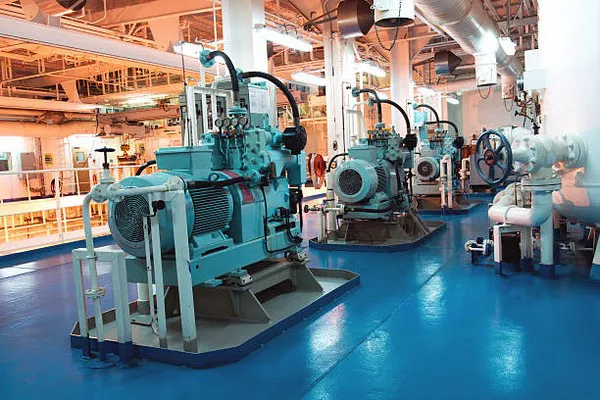Compressors are vital components in various industries, responsible for generating compressed air for a wide range of applications. Whether it’s powering pneumatic tools, operating machinery, or facilitating industrial processes, compressors play a crucial role in numerous operations. However, to ensure optimal performance and longevity, proper maintenance is essential, and one critical aspect of compressor maintenance is lubrication. In this guide, we’ll delve into the intricacies of compressor oil, answering the common question: How much oil does a compressor need?
Understanding Compressor Lubrication:
Lubrication is the lifeblood of any compressor system. It reduces friction between moving parts, minimizes wear and tear, and helps dissipate heat generated during operation. Without adequate lubrication, compressors can suffer from premature failure and costly downtime. Therefore, selecting the right type and amount of oil is paramount for ensuring smooth and reliable compressor operation.
Types of Compressors and Lubrication Requirements:
Compressors come in various types, each with its unique design and lubrication requirements. Reciprocating compressors, characterized by piston-driven motion, typically require oil for lubricating the piston rings and cylinder walls. Rotary screw compressors, on the other hand, rely on oil for both lubrication and sealing of the rotors. Centrifugal compressors, which utilize high-speed impellers, have minimal lubrication needs compared to other types but may still require oil for bearing lubrication.
Oil Selection:
Choosing the right type of oil is crucial for ensuring optimal compressor performance. Factors such as viscosity, temperature range, and compatibility with compressor materials must be taken into account. For reciprocating compressors, non-detergent mineral oils are commonly used, while rotary screw compressors may require synthetic oils for better lubrication and thermal stability.
Oil Capacity:
Determining the correct oil capacity for a compressor involves considering various factors, including the compressor size, design, and operating conditions. Generally, compressor manufacturers provide guidelines for the recommended oil capacity based on the specific model. It’s essential to follow these recommendations to prevent overfilling or underfilling, which can lead to lubrication issues.
Oil Change Frequency:
Regular oil changes are essential for maintaining optimal compressor performance and prolonging the lifespan of the equipment. The frequency of oil changes depends on factors such as operating hours, ambient conditions, and oil quality. As a general rule of thumb, it’s recommended to change the compressor oil every 3 to 6 months or as specified by the manufacturer.
Oil Level Monitoring:
Monitoring the oil level in the compressor is vital for detecting any abnormalities or leaks promptly. Most compressors are equipped with oil level sight glasses or dipsticks for easy oil level inspection. It’s essential to check the oil level regularly and top up if necessary to ensure proper lubrication and prevent damage to the compressor components.
Oil Quality Maintenance:
Maintaining oil quality is essential for ensuring optimal compressor performance and preventing premature wear and tear. Proper filtration systems should be in place to remove contaminants from the oil, and the oil should be stored in clean, sealed containers to prevent contamination. Additionally, regular oil analysis can help detect any signs of degradation or contamination early on, allowing for timely corrective action.
Troubleshooting Oil Issues:
Despite proper maintenance, compressor oil issues may still arise. Common problems include oil leaks, foaming, contamination, and degradation. It’s crucial to address these issues promptly to prevent further damage to the compressor and ensure uninterrupted operation. Troubleshooting tips may include inspecting seals and gaskets for leaks, checking for proper oil viscosity, and conducting thorough oil analysis to identify any underlying issues.
Safety Precautions:
When handling compressor oil, safety should always be a top priority. It’s essential to follow proper safety procedures to prevent accidents and environmental damage. This includes wearing appropriate personal protective equipment, such as gloves and goggles, when handling oil, and ensuring proper ventilation in oil storage areas. Additionally, used oil should be disposed of responsibly, following local regulations and guidelines.
Conclusion:
In conclusion, proper lubrication is essential for maintaining the performance and longevity of compressor systems. By understanding the lubrication requirements of your compressor and following best practices for oil selection, monitoring, and maintenance, you can ensure smooth and reliable operation while minimizing the risk of costly downtime. Remember to consult the manufacturer’s guidelines and recommendations for specific oil requirements and maintenance procedures tailored to your compressor model. With proper care and attention, your compressor will continue to serve you faithfully for years to come.

